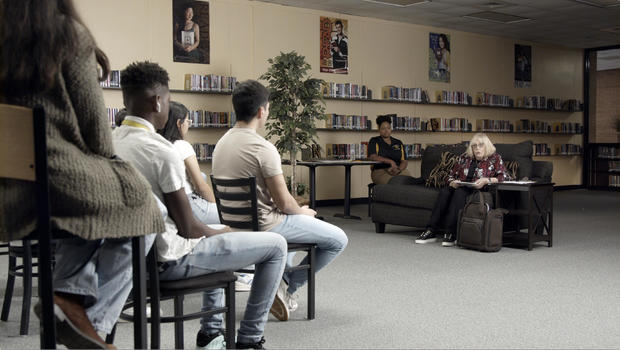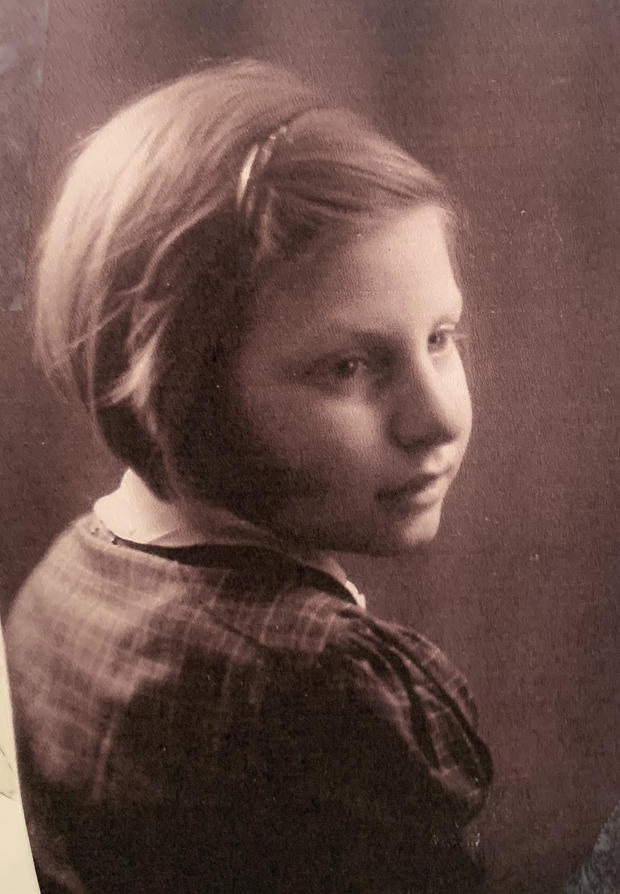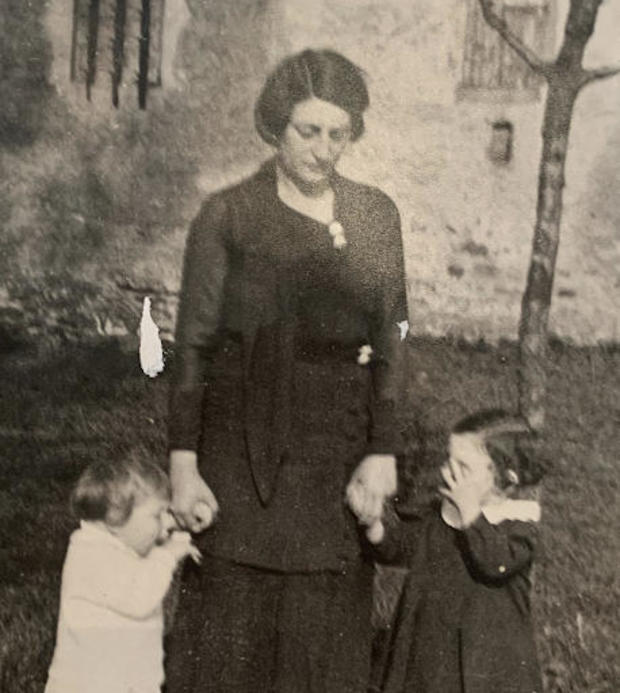“We cannot let it happen again”: Holocaust survivor shares her story with students to help keep history alive
The CBS special “Undeniable: The Truth to Remember” airs Saturday, January 29 at 8 p.m./7 Central and streams live and on demand on Paramount+.
Since 2005, the United Nations has designated January 27th as International Holocaust Remembrance Day — a day to remember the millions of men, women and children murdered by the Nazis. More than 75 years after the attempted mass extermination of Europe’s Jewish population, the world reasserts its promise to “Never Forget.”
Yet recent polls indicate our collective memory is fading. A 2020 survey found that more than 60% of American young adults didn’t know that the Holocaust took the lives of six million Jewish men, women and children. Half couldn’t name a single concentration camp.
Worse still, 1 in 10 blamed the genocide on the Jews themselves.
Only 19 states in the U.S. require the subject to be taught in schools — and the quality of that education can be questionable. Last November, teachers in a Texas school district were told that they needed to make “opposing views on the Holocaust” available to students under a new state law that requires teaching “multiple perspectives” on controversial issues — as if the Holocaust were a matter of debate. The school superintendent later apologized.
For Ruth Steinfeld, an 88-year-old Holocaust survivor living in Texas, that incident was not just offensive, it was a warning sign.
“I want you to know this really happened. It happened to me,” she recently told a group of students at Hastings High School in Houston as part of her decades-long mission to share her story.
CBS News
Steinfeld was born in Germany in 1933, the same year that Hitler rose to power. When she was 5 years old, her family home was vandalized during Kristallnacht, or “The Night of Broken Glass,” a two-day campaign of violence orchestrated by the Nazi party that resulted in the destruction of 7,500 Jewish-owned buildings and the arrest of 30,000 Jews.
In 1940, Ruth and her family were rounded up and moved to a concentration camp in Gurs, France. Her father was immediately separated from the family, and they never saw him again.
Courtesy of Ruth Steinfeld
Her mother made the heart-wrenching decision to entrust 7-year-old Ruth and her sister Lea to the Oeuvre de Secours aux Enfants, a French Jewish humanitarian organization that smuggled children out of camps and into hiding with foster families. This decision saved the girls’ lives, but with a terrible cost.
All these years later, Steinfeld still breaks down crying as she describes the separation to the Hastings students.
“I couldn’t understand why my mother would give me away, especially when I promised that I would be good,” she recalls. It would be years before she could understand the enormous love behind that painful decision.
Courtesy of Ruth Steinfeld and Lea Krell Weems
She and her sister spent the next five years posing as Catholics and moving from one foster family to another when neighbors became suspicious. After the war ended, their grandfather managed to find them and bring them to America.
They would eventually learn that their mother and father were both killed in Auschwitz.
Ruth Steinfeld is one of a dwindling number of Holocaust survivors who are still alive and able to tell their stories. Within a decade, virtually all will be gone. For her and other survivors, these are uncertain times, with an alarming surge in anti-Jewish sentiment.
“The Holocaust started with words, words of antisemitism,” she says. “And there is a lot of that going on now. We cannot let it happen again. Before, we had no idea what words could do, and now we know.”
Download our Free App
For Breaking News & Analysis Download the Free CBS News app
For all the latest World News Click Here
For the latest news and updates, follow us on Google News.




